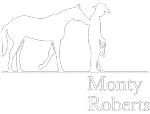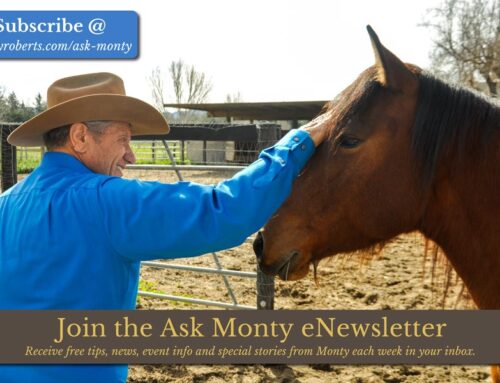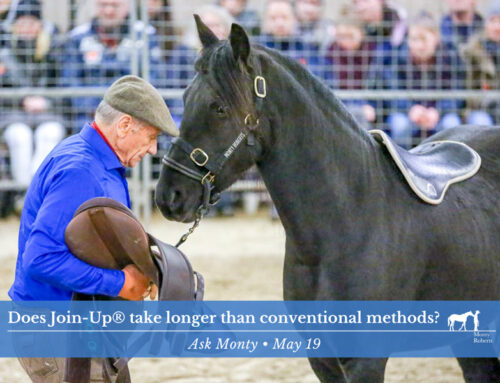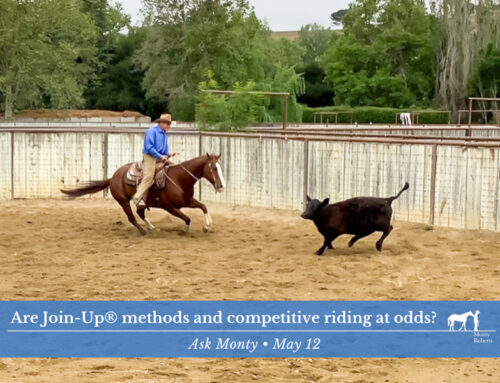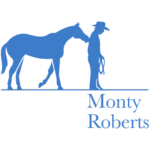December 23, 2020 – Ask Monty Newsletter
Question: Are you a positive influence on your horse?
Dear Monty,
I have three horses. One is a 2 year old, one is a 7 year old and one is 14 years old. I am curious as to why the behavior of these horses tends to change so dramatically when I work with them. Is it simply that we have to work for years to get full acceptance from our horses? My oldest one lets me do almost anything with him. The middle one is fairly spooky when I move in certain ways. The 2 year old is absolutely dangerous for me to work with. Is this just because they haven’t had a human around them and they need years to become gentle? Please help me understand what I should do to facilitate the process of gentling my horses.
Amy
Monty’s Answer:
Dear Amy,
In answer to your question, I have to say to you that I believe it would have taken me a lot longer to learn the gentling process had I not been exposed to wild creatures early in life. As it turns out the mustangs that I worked with at 10 11 and 12 years of age were teaching me how to gentle horses without my even knowing that I was learning. Looking back on it it turns out that my #1 life skill is observation.
Subconsciously, I was observing certain behavioral patterns coming from the mustangs which were dangerous. My body’s nervous system was able to read these responses without my brain being involved. I found myself gentling young mustangs in record breaking short time spans. People tended to say I was a genius at gentling wild horses. I now know that they were very wrong when terming me a genius at anything.
My muscle memory would kick in and did what the horse needed without knowing what I was doing. Later in life, I was to work with wild deer and they were the ones that told me what I was doing because of their extreme sensitivity. The wild deer are many times more sensitive than horses are. What they taught me was how to be what I was about to do before I even did it. The fact is that the sensitive deer will charge you a very big price for getting any behavior wrong.
The horses charge you a lower price so your tendency is to get it wrong for a longer period of time. The horse will finally get it through to you even if you aren’t consciously aware of it. The deer with their large price will more quickly cause you to be aware of the mistakes you are making.
Try to work with your horses, and see yourself in a mirror at the same time. You won’t need a real mirror but look inward when your horse makes what you consider to be an error. We must take the position that the horse is never wrong and constantly look inward to find what we did to cause the action in question.
This works with positive behavior as well with negative behavior. We simply need to learn to repeat the actions that cause positive behavior and limit the actions that cause the negative behavior.
Sincerely,
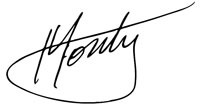
Read the full newsletter: Are you a positive influence on your horse?
